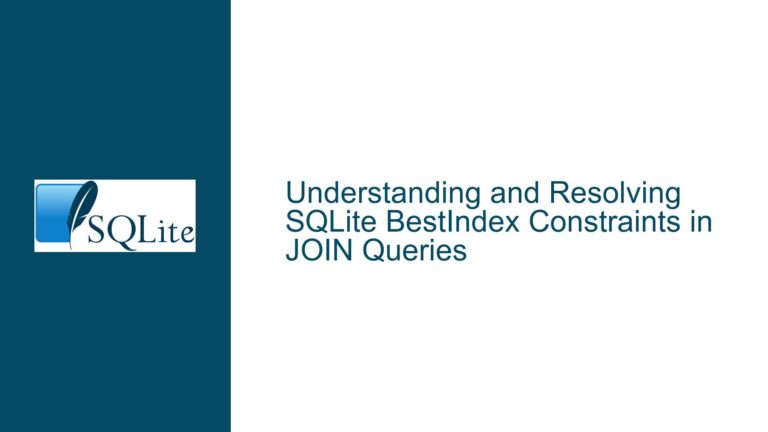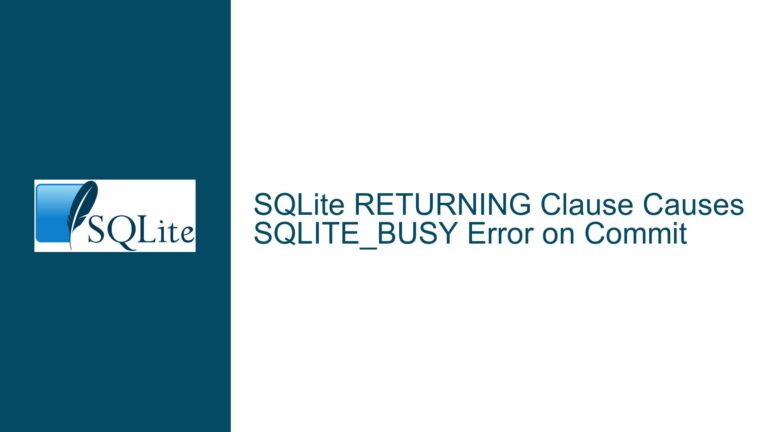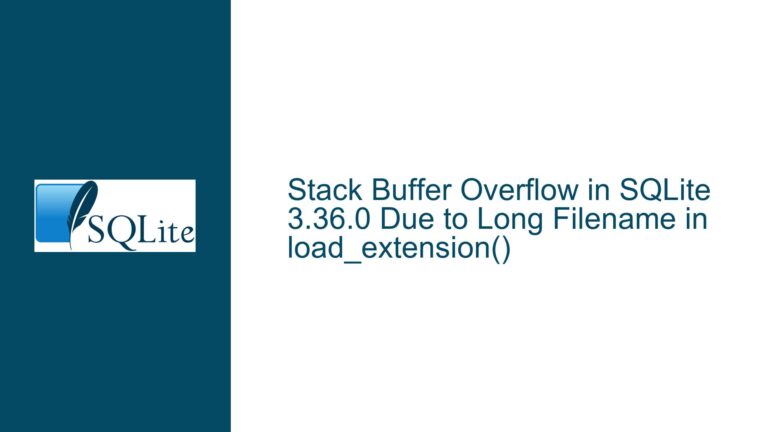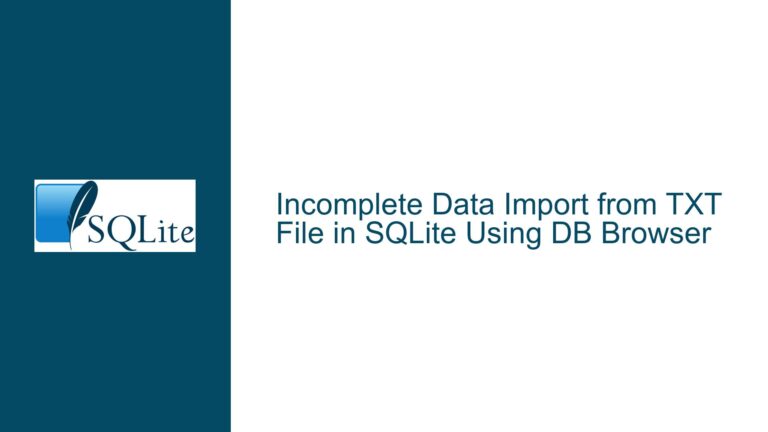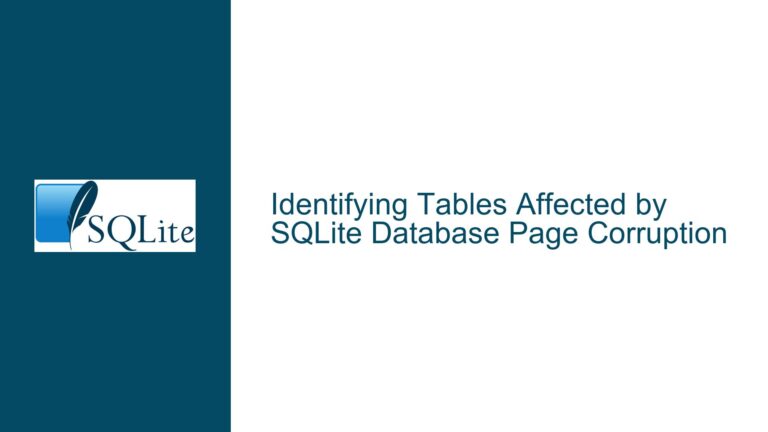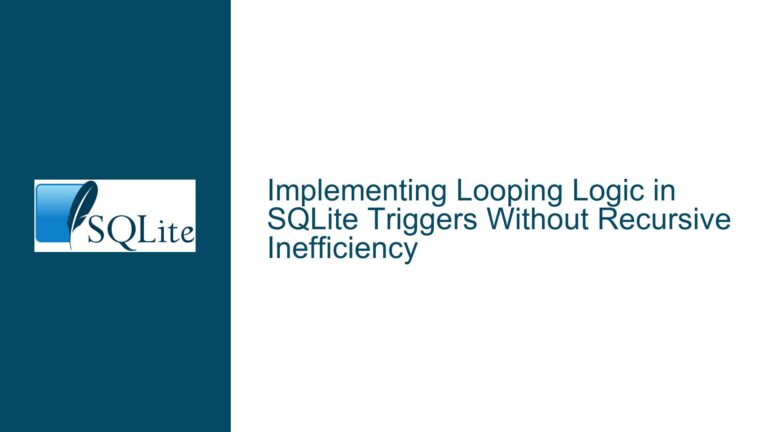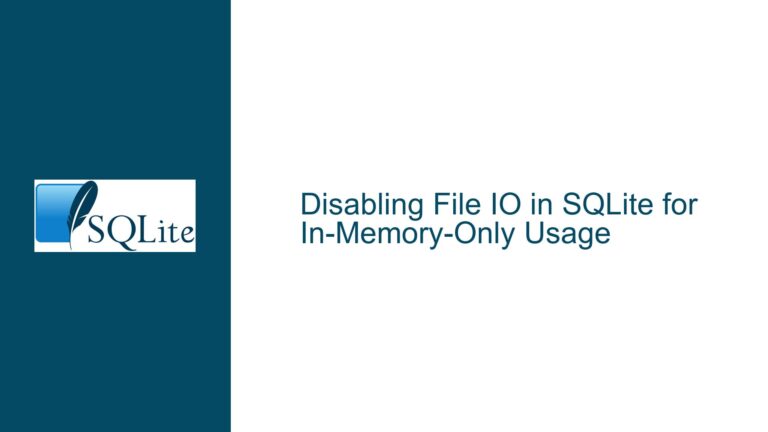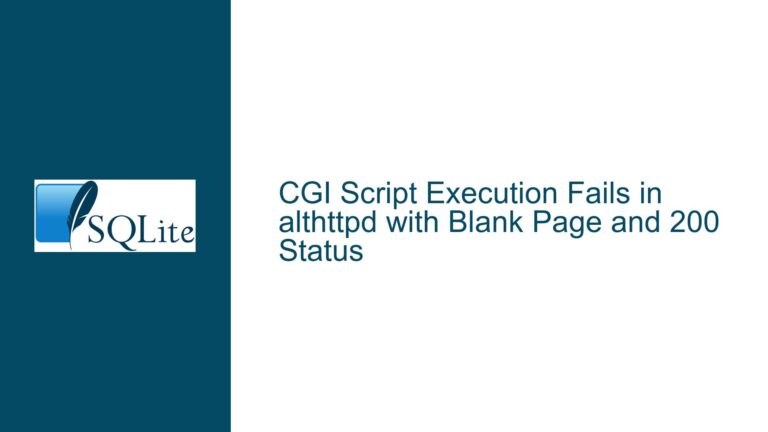and Resolving SQLite BestIndex Constraints in JOIN Queries
Issue Overview: BestIndex Constraints in JOIN Queries and Their Impact on Query Performance When working with SQLite, particularly in the context of virtual tables and JOIN operations, the BestIndex function plays a critical role in determining the most efficient query execution plan. The BestIndex function is responsible for evaluating the constraints applied to a query…
